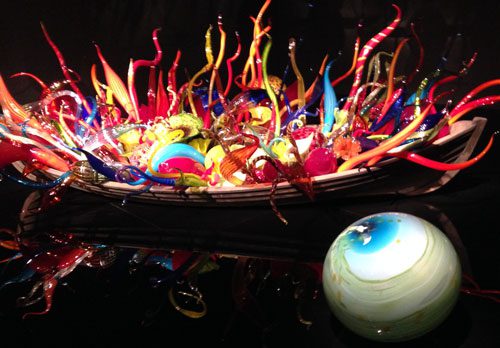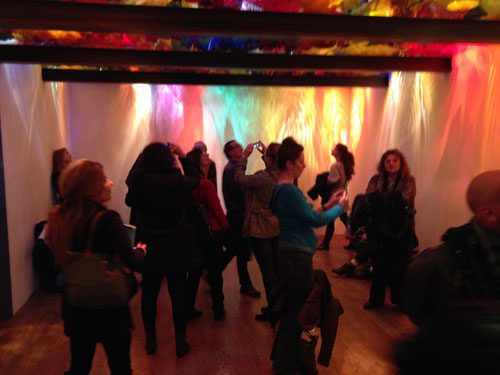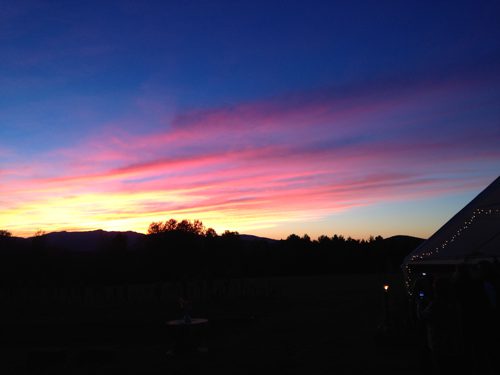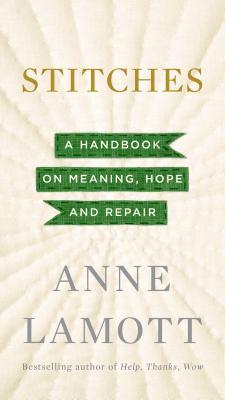 Yesterday was the last day for the Dale Chihuly exhibit at the Montreal Museum of Fine Arts. Chihuly makes grand scale blown glass sculptures in illuminated colors that can blow your mind.
Yesterday was the last day for the Dale Chihuly exhibit at the Montreal Museum of Fine Arts. Chihuly makes grand scale blown glass sculptures in illuminated colors that can blow your mind.
The museum was packed with people, like myself, who waited until the last day to see the exhibit.
The galleries had no ambient light. The installations provided all the light. The piece you see on the left is about fifteen feet wide.
The colors, forms, and textures were quite compelling. They could stop your mind, if you let them.
As soon as I entered the dark, crowded spaces and beheld the first flourishes of glass and color, I reached for my phone to take a picture. I was not alone. iPhones and iPads were clicking away.
What did this compulsion accomplish? What did it cost me? (and everyone else?)
I wanted to have a visual record of this experience. In part, so I could share it with you, my readers. But there was also something more insidious happening. I wanted to hold on to the experience by capturing it with a photographic representation. This “cost” me the experience in the moment. It removed me from the raw power of the art. 
After a while, I was seeing the art through the camera instead of my eyes. My mind was not blown or stopped yesterday. I was impressed without doubt. I was moved intellectually by the scope of the work, but I was not stirred emotionally. I was somewhere else, hanging on to the past, leaning into the future, and the mumblings in my head insulated me from a more direct experience of the present.
It occurred to me that I could remove myself from the crowds and find a quiet spot to meditate and then re-engage. Time was running out, but I did this. The second viewing showed me more.
The situation of an art show is different than the photographer looking through the view finder in search of subject matter. I just listened to a 2010 interview with the now late Lou Reed on Q. Reed said that “the world looks better through the camera.” A high end camera can see things that the human eye cannot, but again this is a different context.
The moments of our lives vary in terms of how open we are. We can push that through practice but not every moment is going to provide mind-blowing openness. I think the way we approach the present with camera-in-hand makes it more remote. Had I walked through the first time without the camera and all the anxiety the camera brings (the desire to get the right image and to share it with everyone), I think I would have enjoyed it more.

